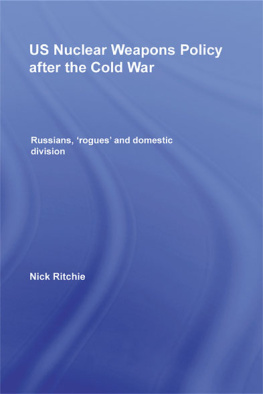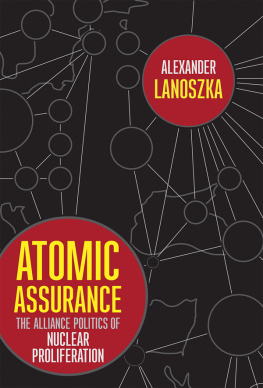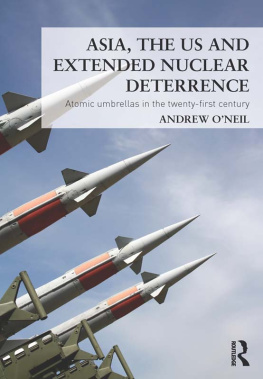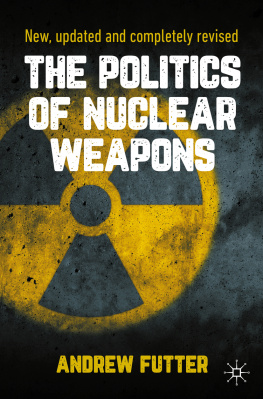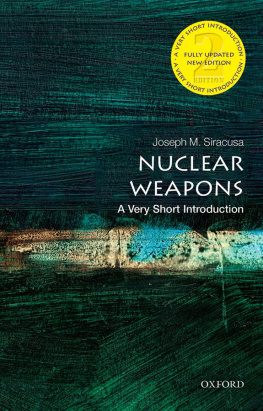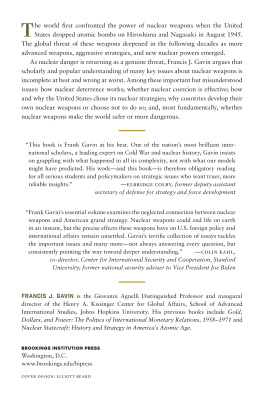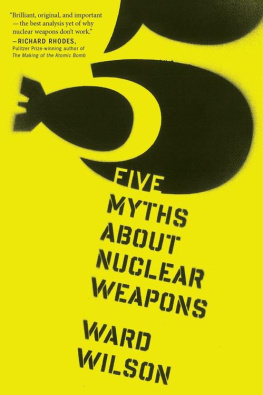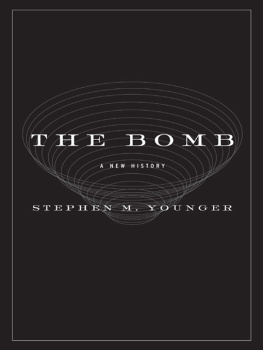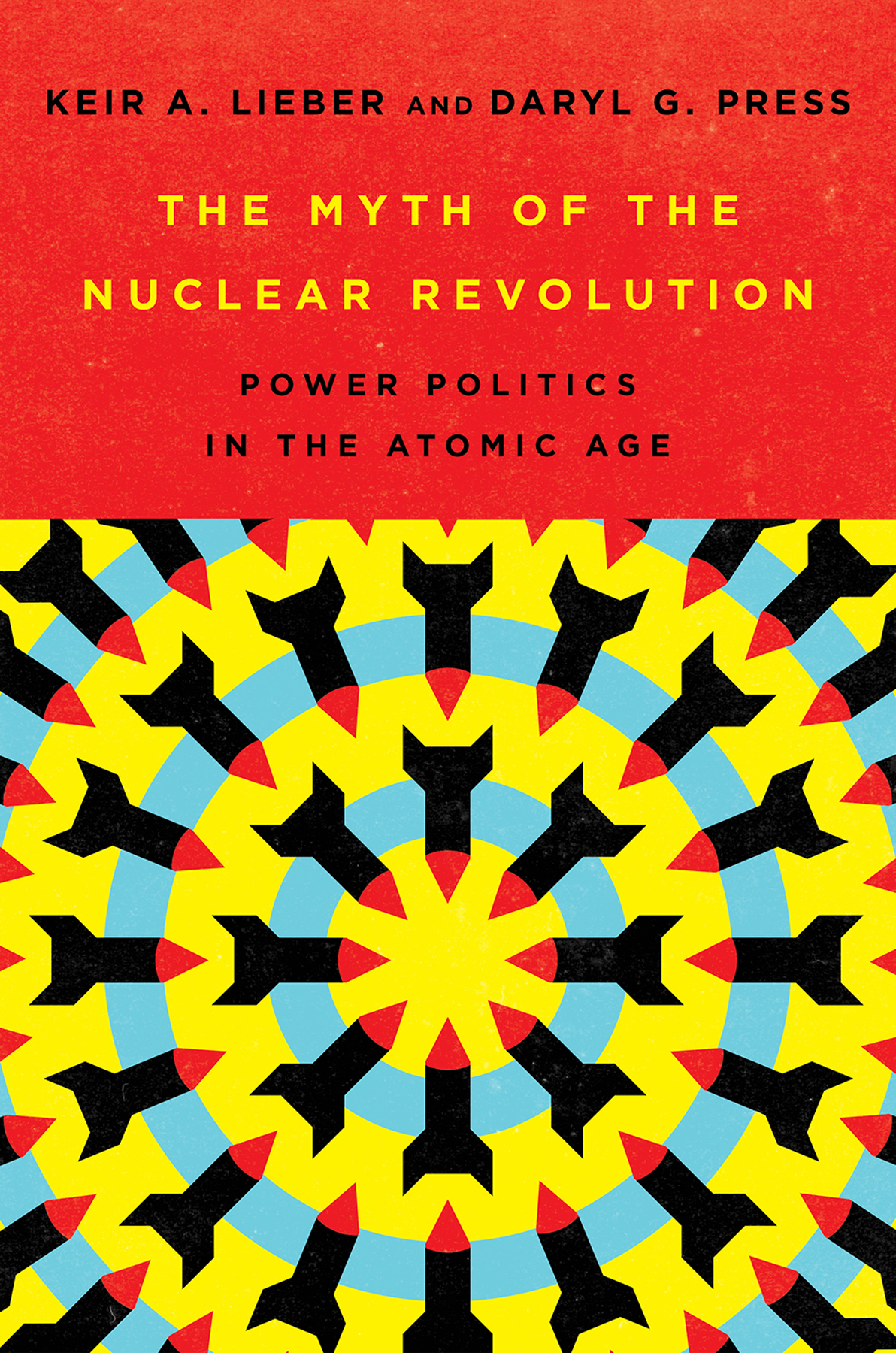KEIR A. LIEBER AND DARYL G. PRESS
Acknowledgments
We are deeply grateful for the support and assistance we received while writing this book. Our terrific colleagues and students at Dartmouth College, Georgetown University, and the University of Notre Dame were invaluable sources of intellectual inspiration, research assistance, and constructive criticism.
Our universities provided generous grants for travel, research, and writing. In particular, we thank the Center for Security Studies, the Graduate School of Arts and Sciences, the Office of Research Services, and the Office of the Provost at Georgetown, as well as the Graduate School Office of Research, Institute for Scholarship in the Liberal Arts, and the Kroc Institute for International Peace Studies at Notre Dame.
The financial support of several foundations and other organizations was also crucial for allowing us to complete this work. That included funding from the Carnegie Corporation of New York, the Project on Advanced Systems and Concepts for Countering Weapons of Mass Destruction, and the Smith Richardson Foundation. An earlier version of chapter 3 (Escaping Stalemate) was published as Keir A. Lieber and Daryl G. Press, The New Era of Counterforce: Technological Change and Future of Nuclear Deterrence, International Security 41, no. 4 (Spring 2017): 949; we are grateful to the journal for permission to use the material here.
Over the years, we have presented our work at countless academic workshops and seminars, government offices, educational programs, think tanks, research institutes, military bases, defense universities, and conferencesboth in the United States and abroad. We cannot thank by name every individual who participated in, hosted, or discussed our work at those events, but your comments and criticisms were crucial for the development and clarification of our arguments.
One day-long workshop at the University of Chicago stands out, however, and not just because all such murder boards typically do. As colleagues from several universities gathered to tear apart every chapter of our manuscript, they realized and then slowly convinced us that our book, which we had framed far more narrowly, was actually a critique of the theory of the nuclear revolutionarguably the dominant model for understanding the role of nuclear weapons in international politics. We are deeply grateful to those colleagues for their time, insights, withering critiques, and enormously helpful advice.
Which leads to a related topic: the role of friendship in academic research. It is the friendship of colleagues around the world that led so many of them to read, critique, and try to help us improve our work. And it is the friendship among coauthors that makes the long hours of writing, rewriting, tracking down arcane details and citations, and rewriting yet again not just bearable but worthwhile and fulfilling.
We could not have completed this book, nor balanced our professional and personal lives with any hope of success, without our extraordinary spouses, Meredith Bowers and Jennifer Lind. Occasional eye rolls notwithstanding, their support, patience, and encouragement inspired us every step of the way. We also thank, again, those who supported us from the beginning: Nancy and Robert Lieber, James and Grace Press, and Susan and Joel Bowers.
We dedicate this book to our amazing children: Sophie, Isabel, Lucy, and Delilah Lieber, and Eleanor and Ian Press. Scholars of nuclear deterrence often close such dedications by hoping that their kids might someday live in a world without these horribly destructive weapons. We take a different view. We hope that our children, whom we love more than anything, live in a world in which careful scholarship and smart policies minimize the terror inherent in these weapons while maximizing the prospects for an enduring nuclear peace.
Introduction
The Nuclear Puzzle
The defining characteristics of the nuclear age are terror and peace. Terror, because the existence of nuclear weapons means that any major war could imperil civilization. Peace, because the nuclear era has coincided with an unprecedented period without war among the worlds great powers. Small-scale conflicts still occur, yet major conflicts between the most powerful countries vanished with the dawn of the nuclear era in 1945.
The link between nuclear weapons and peace among the great powers is not mere coincidence. First, nuclear weapons have dramatically raised the potential costs of war. As terrible as conflict was in the prenuclear era, the devastation from nuclear war could be far worse. Second, and more important, nuclear weapons appear to make victory in war impossible. Throughout human history the costs of warthough often staggeringly highwere borne disproportionately by the losing side. Leaders plunged their societies into terrible conflicts because if they won, war could pay. But in the shadow of nuclear weapons, both aggressors and victims face the same fate: devastation. By making war both enormously costly and seemingly futile, nuclear weapons have greatly reduced the incentives for major conflicts.
The logic of the nuclear peace is compelling, but it reveals a central anomaly in international politics. If nuclear weapons are such powerful instruments of deterrence, virtually guaranteeing the core security of countries that possess them, then why do so many aspects of international politics in the nuclear era resemble those of the prenuclear age? Specifically, why is there so much geopolitical competition among the major powers? If nuclear-armed countries are fundamentally secure from attack, why dont they act accordingly?
In the prenuclear era, countries used a familiar playbook to defend themselves and jockey for power. They built powerful alliances, engaged in arms races, competed to control strategic territory, and remained vigilant about shifts in the global balance of power. The tragedy of world politics is that these strategies have often exacerbated fear, distrust, and competition in the international system, leading to devastating wars.
Such wars among the major powers have thankfully been absent in the nuclear age, but the playbook used by those countries otherwise remains largely the same. In the Cold War era, the postCold War era, and contemporary international affairs, major power rivals have continued to compete for strategic advantage by building and improving their nuclear and conventional military forces, enlarging alliances, expanding into new strategic territory, and all the while eyeing warily any changes in the balance of power.
To be clear, nuclear weapons have had a huge impact on international relations by helping to prevent great power war. These weapons are the most effective instrument of deterrence ever created. But therein lies the key puzzle of the nuclear era. If these weapons are so good at preventing war, why do the major powers continue to play by the old geopolitical rules? Why does security competition remain so intense?
This book explains the central anomaly of the nuclear age: the continuation of great power competition under the shadow of nuclear weapons. Nuclear weapons are the most effective instruments of deterrence ever invented, but they have not eliminated the incentives for countries to compete intensely with each other for greater security, power, and strategic advantage. Understanding why power politics endure in the nuclear age does not merely solve a puzzle for international relations theory; it provides vital insights into the requirements of nuclear deterrence, as well as the trends that may undermine deterrence in the coming decades.


